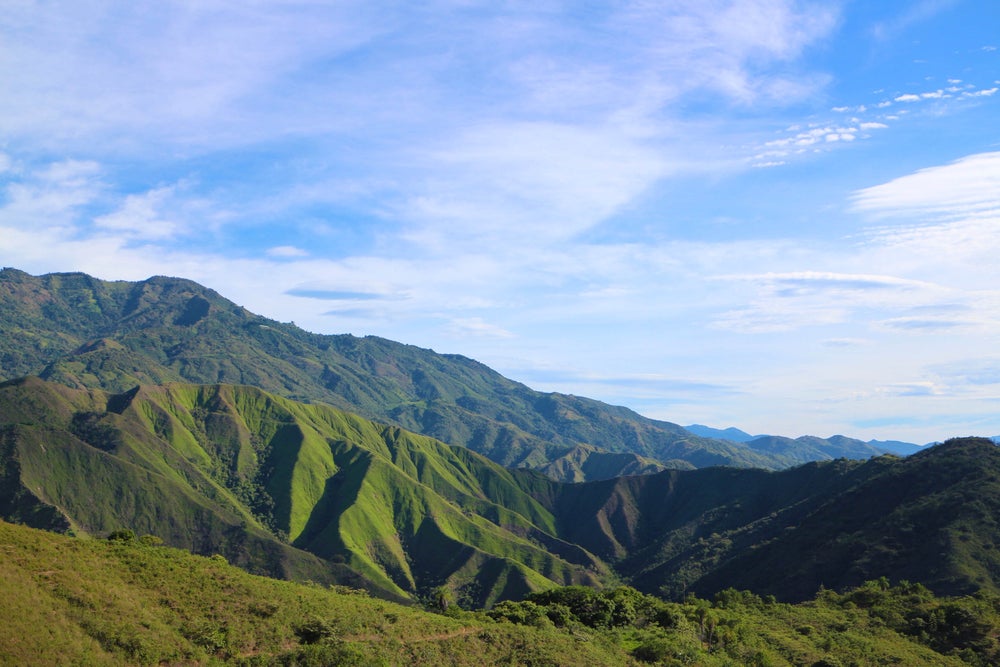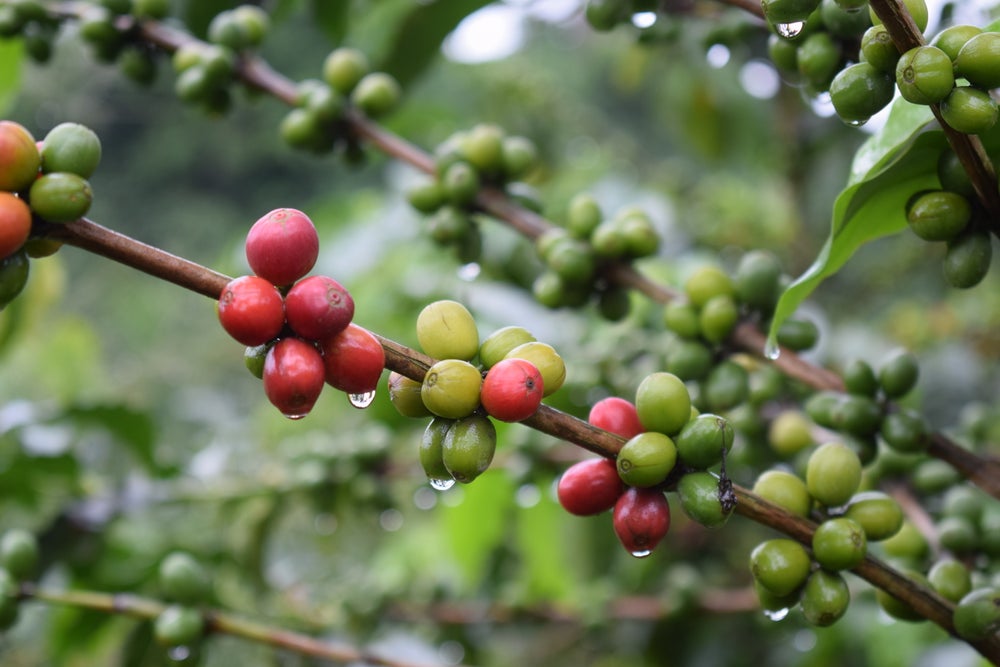About This Coffee
With Fincamigos, Cafexport plans to explore more sustainable ways to cultivate high-quality specialty coffee. They are searching for ways to make a more lasting positive social impact and to preserve and rejuvenate coffee farm ecosystems.
Their lots are comprised of some of the mostly highly-sought-after coffee varieties including Sudan Rume, Geisha and Tabi. These varieties are all known for their high cupping scores and complex profiles.
Sudan Rume is an ancient landrace variety that was first cultivated in South Sudan’s Boma plateau. It is a genetic parent of many well known varieties, including SL28. Tabi is a newer variety that descends from Typica, Bourbon and Timor. It has slightly larger fruits and seeds and can be grown at high altitudes, and in high density, with up to 3,000 trees per hectare. Geisha is a specialty world darling known for its high scoring cup and incredible fruity notes.
Cultivation
Cafexport cultivates a range of high quality varieties at Fincamigos. They produced their first Tabi, Geisha and Sudan Rume lots in 2020 and their first Laurina lot in 2021.
Fincamigos preserves 4 hectares for forest conservation. They have planted more than 650 native trees and plants. These native species help rejuvenate the ecosystem and create a habitat for the migratory birds that pass through the region each year.
Harvest & Post-Harvest
Cherry is selectively handpicked and then pulped in a drum pulper. Coffee is fermented in water for approximately 48 hours and then laid on drying beds. Parchment sundries for approximately 8 days. Parchment is turned frequently to ensure drying.
About Tabi
Tabi is a cross between Typica, Bourbon and Timor that was created by CENICAFE. It was released in 2002 and combines coffee leaf rust resistance with the good cup quality of Bourbon and Typica. Similar to those two parents, Tabi is tall with long branches. However, Tabi has slightly larger fruits and seeds and can be grown at high altitudes, and in high density, with up to 3,000 trees per hectare. The name comes from the word “tabi,” meaning “good” in Guambiano, the dialect of a native Colombian tribe.
About Sudan Rume
Sudan Rume (also written as “Rume Sudan”) is an ancient landrace variety that was first cultivated in South Sudan’s Boma plateau. One of the main reasons Sudan Rume is not widely cultivated commercially is its low productivity. However, Sudan Rume has stronger resistance to Coffee Berry Disease and Coffee Leaf Rust than other Arabica strains, including Bourbon and Typica. Today, the variety is primarily cultivated by plant breeders to include in cultivars. One of its most famous descendants is SL-28. When Sudan Rume is grown commercially it is coveted for its cup quality and relative rarity.
About Geisha
Geisha (also known as Gesha) is known for its exceptional cup quality, especially when grown at high altitudes. The variety comes from Ethiopian landrace coffees and was collected from Ethiopian coffee forests in the 1930s. The name supposedly derives from Ethiopia’s Gori Gesha forest.
There is some confusion with several genetically distinct varieties that have all been called Geisha, but the most famous variety is the Panama one. The variety was brought to Lyamungu research station in Tanzania and from there to Centro Agronómico Tropical de Investigación y Enseñanza (CATIE) in Central America in 1953. At CATIE, the variety was logged as T2722. CATIE distributed T2722 across Panama in the 1960s for its Coffee Leaf Rust (CLR) resistance, but its brittle branches meant it was not widely planted.
Panama Geisha reached its modern fame in 2005 when a Geisha lot won the “Best of Panama” competition and broke contemporary records at over $20/pound. DNA analysis has demonstrated that the Panama Geisha descended from T2722 is distinct and uniform. Today, Geisha is known for its delicate florals, jasmine and stone fruit.
About Cafexport
Great coffee is built on great relationships. We’ve been working with our in-country partner in Colombia, Cafexport, to find farmers who are producing delicious coffees and connect them with you.Cafexport, our in-country partner, is built on the strength of 20 years of meaningful and productive relationships with Colombian coffee cooperatives.
Most of the coffees we purchase from Cafexport are the product of many years of partnership between Cafexport, cooperatives, and farmers. Many are also certified, traceable coffees whose certification, combined with high quality processing and preparation, are sought after by established roasters across the globe.
The majority of the cooperatives with whom we work through Cafexport are from the regions of Caldas, Huila, Tolima, Antioquia, Quindío, Santander, and Magdalena. We like to keep our list of sourcing regions long because diversification allows us to offer coffee with different specifications, flavors and harvest and shipping times to suit every need.
Coffee in Colombia
Colombia has been producing and exporting coffee renowned for their full body, bright acidity and rich aftertaste, since the early 19th century.
Colombia boasts a wide range of climates and geographic conditions that, in turn, produce their own unique flavors in coffee. This also means that harvest times can vary quite a bit. In fact, between all its different regions, Colombia produces fresh crop nearly all year round.
The increasing focus on the specialty industry is changing the way traders and farmers do business. It is becoming more common for farmers to isolate the highest quality beans in their lots to market separately. These higher-quality lots are often sold under specific brands or stories.
Besides its wide variety of cup profiles, Colombia has quickly expanded its certification options over the past 10 years. The most common certifications available are Fairtrade, Rainforest Alliance, UTZ and Organic.

